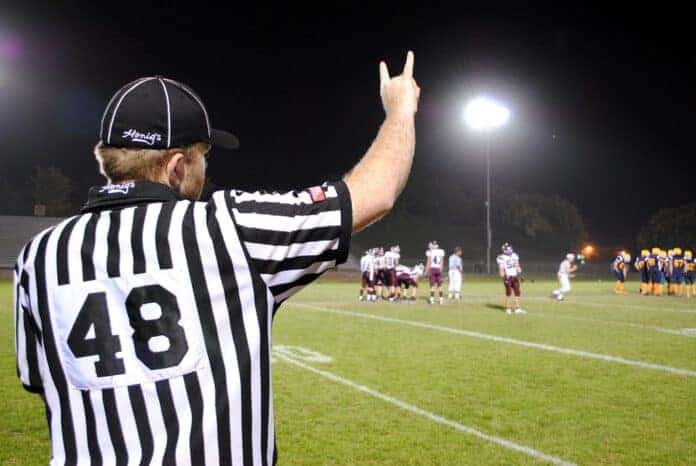Lawmakers listened to hours of testimony last week about how toxic parents and their near-constant complaining have made it tough to find or keep referees and umpires across Wisconsin.
Is a referee harassment law to protect referees and umpires at high school or youth sports games necessary? Democrats in the Wisconsin Assembly aren’t so sure.
Rep. Alex Dallman, R-Green Lake, is co-sponsoring the anti-harassment plan. He says Wisconsin has laws against attacking referees or umpires. Though Dallman says the state doesn’t have a sufficient way of punishing fans who cross the line but stop just short of an assault.
“This isn’t about the occasional displeasure of a spirited fan, or someone being hard on a ref or an ump,” Wisconsin Interscholastic Athletic Association Executive Director Dave Anderson told lawmakers last week. “Our officials have thick skin. But they shouldn’t have to be chased back to their cars. They shouldn’t have to feel fearful or unsafe, or confront the threat of violence for doing their job.”
Dallman’s plan would make it a misdemeanor to harass or intimidate an official.
“As a licensed sports official for the last 10 years I have been both verbally and physically confronted while officiating,” Dallman said during the hearing on his plan. “It has become an increasing issue across all levels of sports. And harassment has led to a decline in the number of people [becoming] sports officials.”
“When I look at this bill, it makes me wonder if bypassing this, we are putting acts of violence on the same stage as acts of harassment,” Ortiz-Velez asked.
Proposed Referee Harassment Law Questioned
Democrats at the hearing, including Rep. Sylvia Ortiz-Velez, D-Milwaukee, questioned the need for establishing a referee harassment law.
Dallman said current punishments are essentially one-and-done.
Other Democrats wondered if schools and officials simply were not enforcing the laws already on the books.
There’s no word when the proposal for the referee harassment law might prompt a vote.
“Once we remove them from the school, it solves the problem for that day. It doesn’t solve it forever,” Dallman explained. “I’d like to see this enhancement to allow us to either deter them from doing this over and over again. Or at least be able to say ‘This is the penalty you have if you come back to our school and do this again.”
Table of Contents











![WATCH: Elon Musk Town Hall Rally in Green Bay [FULL Video]](https://www.wisconsinrightnow.com/wp-content/uploads/2022/04/Elon_Musk_3018710552-356x220.jpg)



![The Wisconsin DOJ’s ‘Unlawful’ Lawman [WRN Voices] josh kaul](https://www.wisconsinrightnow.com/wp-content/uploads/2025/03/MixCollage-29-Mar-2025-08-48-PM-2468-356x220.jpg)







![Phil Gramm’s Letter to Wall Street Journal [Up Against the Wall]](https://www.wisconsinrightnow.com/wp-content/uploads/2025/03/gramm-356x220.png)











